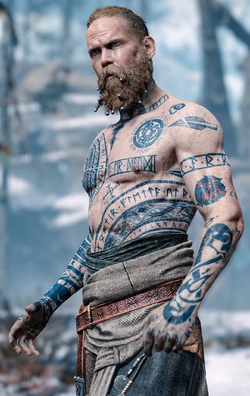Baldur, a pivotal figure in Norse mythology, is often depicted as a symbol of beauty, love, and invulnerability. However, his narrative takes a dramatic turn, intertwining him deeply with themes of fate, conflict, and the consequences of war. In the realm of video games, particularly in “God of War,” Baldur is reimagined as a powerful and complex character, driving much of the baldur god of war game’s emotional and thematic weight.
The Mythical Background of Baldur
In Norse mythology, Baldur is the son of Odin, the All-Father, and Frigg, the goddess of love. His beauty and grace made him beloved by all, including the gods. However, his invulnerability—gained through his mother’s efforts to protect him from harm—became a source of tragic irony. A prophecy foretold that Baldur’s death would bring about the end of the world, known as Ragnarök.
The roots of Baldur’s demise lie in Loki’s jealousy. By tricking the blind god Höðr into shooting an arrow made of mistletoe, Loki ensures Baldur’s fatal fate. This pivotal moment emphasizes the fragility of peace and the inevitability of conflict, themes that resonate powerfully within the “God of War” narrative.
Baldur God of War
In the 2018 reboot of “God of War,” Baldur is portrayed as a fierce antagonist whose quest for freedom drives the plot forward. Unlike his mythological counterpart, this version of Baldur god of war posses a troubled psyche, tormented by his invulnerability, which has rendered him emotionally numb. His desire to experience pain and true emotion leads him to confront Kratos, the game’s protagonist.
This dynamic showcases the duality of Baldur’s character: a powerful warrior longing for vulnerability and connection. baldur god of war tragic quest elevates the narrative, inviting players to reflect on the nature of suffering and the human condition.
Baldur’s Characterization: Strength and Vulnerability
The transformation of Baldur God of War speaks to the game’s commitment to character depth. Players witness a character who is both terrifying and sympathetic. His physical prowess is matched only by his emotional turmoil. The game masterfully explores themes of loss, identity, and the search for purpose, all embodied in Baldur’s journey.
Why Baldur Resonates with Players
Relatable Struggles:
Baldur’s internal conflict makes him a relatable figure. Many players can empathize with the feelings of isolation and the desire for meaningful connections.
Complexity:
Unlike typical villains, Baldur’s motivations are rooted in personal pain, making him a three-dimensional character rather than a mere antagonist.
Emotional Weight:
His story intertwines with Kratos’ own journey, highlighting themes of fatherhood, sacrifice, and redemption. This emotional resonance enhances the gaming experience, creating a powerful narrative that lingers long after the game ends.
Engaging Gameplay:
For fans of action and adventure games, the mechanics of “God of War” complement Baldur’s character arc, offering thrilling encounters that resonate with players who also enjoy Xbox 360 racing games and best PS3 games.
FAQs About Baldur in God of War
1. What is Baldur’s main motivation in “God of War”?
Baldur seeks to break free from his invulnerability to experience pain and emotion, which he believes will give his life meaning.
2. How does Baldur’s character differ from Norse mythology?
While Baldur in mythology is a tragic figure whose death leads to Ragnarök, the “God of War” version emphasizes his psychological struggles and desire for genuine human experience.
3. What themes are explored through Baldur’s character?
Key themes include the nature of suffering, the quest for identity, and the complexities of familial relationships, particularly between fathers and sons.
4. Why is Baldur considered a compelling antagonist?
Baldur’s tragic background, combined with his relatable desires and internal conflicts, makes him a complex and engaging character, elevating the story beyond a simple good vs. evil narrative.
Conclusion
Baldur’s journey in “God of War” serves as a poignant reminder of the delicate balance between strength and vulnerability. His character embodies the struggles we all face—the search for identity, connection, and the understanding of our place in a world rife with conflict. As players navigate through this rich narrative, they are not just engaging in a game but participating in a deeper exploration of what it means to be human.
Through expert storytelling, dynamic character development, and emotional depth, “God of War” ensures that Baldur’s legacy continues to resonate, making him one of the most memorable figures in modern gaming.



